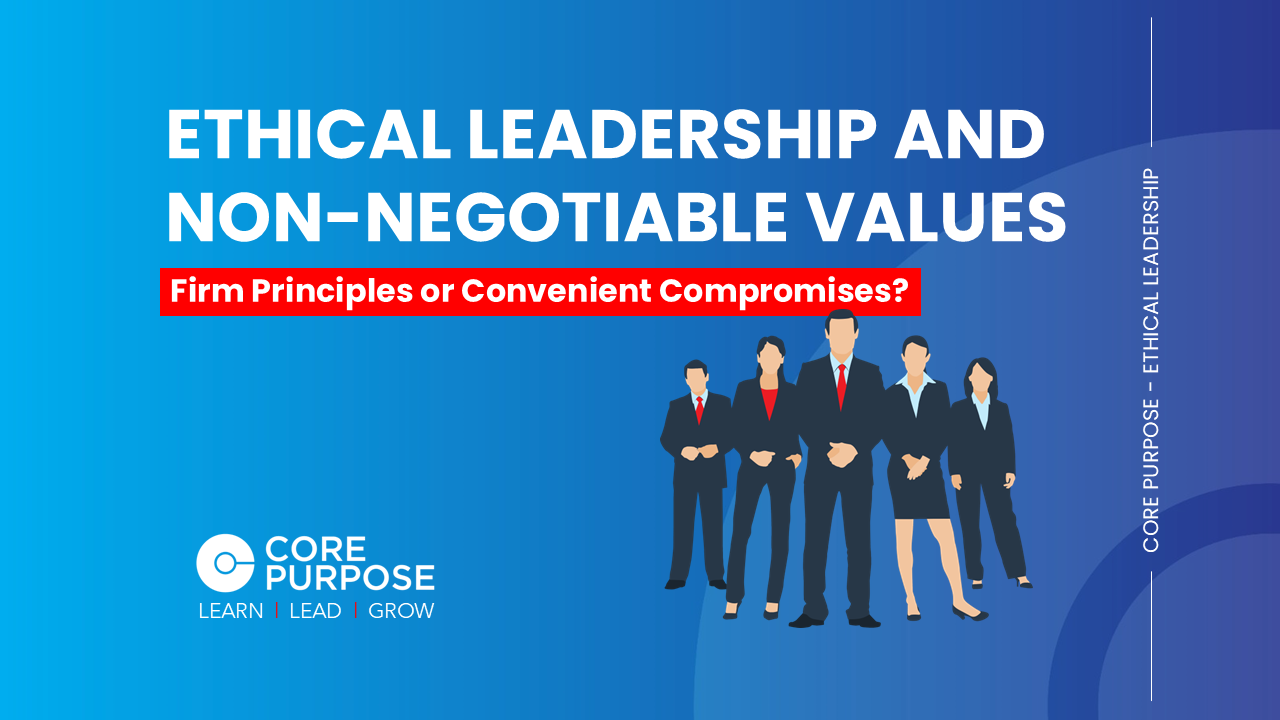
Firm Principles or Convenient Compromises?
Ethical leadership isn’t optional. It defines credibility, drives decision-making, and determines long-term success. Without clear, unwavering values, leaders crumble under pressure.
A 2022 study by the Ethics & Compliance Initiative found that companies with strong ethical cultures experience 40% fewer incidents of misconduct. This statistic highlights the significance of values in leadership. Ethical leadership is about more than just following rules—it’s about setting and defending core principles that guide every action. If your values shift based on circumstances, they aren’t values; they’re excuses.
The root cause? Workplace culture.
Employees don’t just leave jobs—they leave toxic environments, poor leadership, and organizations that fail to align with their values. According to a 2024 Gallup report, 75% of employees who voluntarily left their jobs cited their manager as the primary reason. Traditional management approaches that prioritize short-term results over ethical leadership are no longer sustainable.
The Non-Negotiable Principles of Ethical Leadership
Non-negotiable values separate true leaders from opportunists:
- Integrity – Truth over convenience. No compromises.
- Accountability – Own your actions, good or bad.
- Respect – Treat people with dignity, always.
- Courage – Stand firm when it counts.
- Consistency – No double standards. Live your values daily.
Example: Patagonia refused to compromise on sustainability, prioritising values over profit. Their unwavering stance strengthened customer loyalty and long-term success.
Why Ethical Values Shape Effective Leadership
Ethical leadership creates trust, simplifies tough decisions, and attracts the right people.
- Trust: If people doubt your ethics, they’ll question everything you say.
- Clarity: Clear values eliminate hesitation in high-stakes situations.
- Talent: Ethical companies attract and retain top performers.
Challenges? Plenty. Leaders face:
- Ethical grey zones—where rules don’t apply but values must.
- Pressure to compromise for short-term gains.
- Resistance from those who benefit from ethical shortcuts.
Ethical Leadership vs. Traditional Leadership
- Traditional Leadership:
- Prioritises profit at any cost
- Makes short-term, reactionary decisions
- Commands through hierarchy
- Avoids tough ethical calls
- Ethical Leadership:
- Balances profit with principle
- Takes a long-term, values-driven approach
- Builds trust through integrity
- Confronts ethical dilemmas head-on
A traditional leader cuts costs at the expense of people. An ethical leader finds a solution that aligns with values and sustains the business.
Ethical Leadership in Action: Real-World Examples
Real leaders prove their values under pressure:
- Satya Nadella (Microsoft) – Revamped company culture with empathy, diversity, and ethics at the core.
- Howard Schultz (Starbucks) – Chose ethical sourcing and employee benefits over easy profits.
The Tangible Benefits of Ethical Leadership
Unshakable ethics drive:
- Reputation: Ethical businesses earn lasting trust.
- Performance: Engaged employees, stronger teams.
- Profitability: Avoid legal issues, maintain customer loyalty.
Ethical shortcuts lead to long-term failure. Do it right from the start.
How to Build Ethical Leadership Skills
- Define Your Core Values – Write them down. No exceptions.
- Apply Ethics to Real Decisions – If it’s not actionable, it’s worthless.
- Create Accountability Systems – Enforce ethics at all levels.
- Encourage Open Dialogue – Let people call out ethical concerns without fear.
Take the Next Step
The Ethical Leadership Blueprint isn’t theory—it’s application. It guides leaders to:
- Identify and reinforce their non-negotiable principles.
- Develop strategies to lead with integrity under pressure.
- Navigate real-world ethical dilemmas with confidence.
📌 Explore The Ethical Leadership Blueprint and start creating a high-trust workplace today!
Explore The Ethical Leadership Blueprint™ Group Coaching Programme
Until next time,
The 'Leading Today' Newsletter team at Core Purpose.
We guide individuals and organisations to draw on the humanities, on the social sciences, and on the moral fabric of their leaders and employees to build moral capacity and thus reduce vulnerability.
Stay in the loop!
Join our mailing list to receive the latest news and updates from our team.
We hate SPAM too. You can unsubscribe from our list for any reason.

